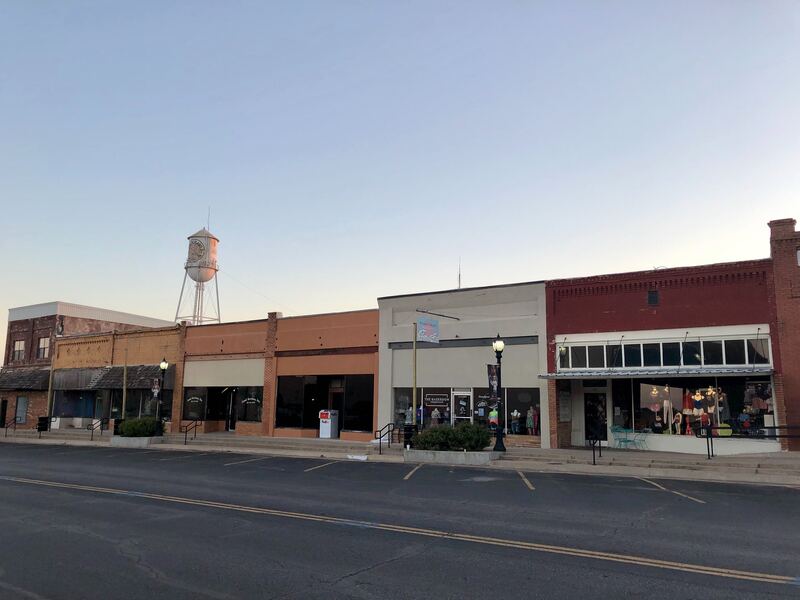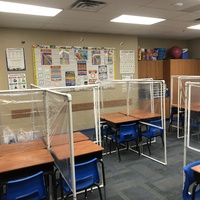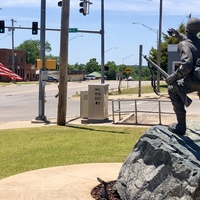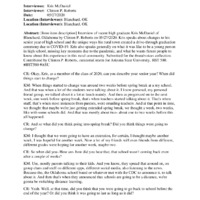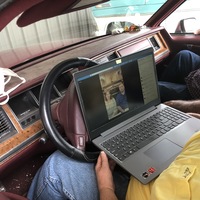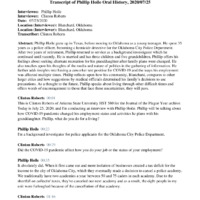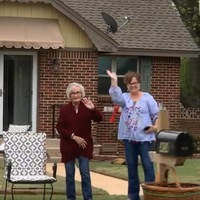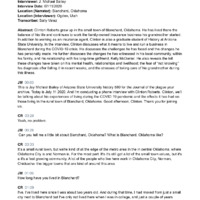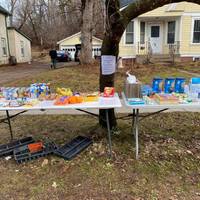Item
Clinton P. Roberts Internship Portfolio
Media
Title (Dublin Core)
Clinton P. Roberts Internship Portfolio
Description (Dublin Core)
The Journal of the Plague Year will become a lasting memory and not just because it is preserved inside of an archive. One of the most memorable aspects will be the way our internship class grew to become a team. As we all look back to our first weeks, little did we know the scope of pedagogy we would need to experience before arriving upon these final days. Dr. Kole gave us the support we needed, but wasn’t afraid to introduce us to the “rapid” nature of a rapid response archive. The conversations of “wearing hats” became common terminology to describe all of the evolving jobs this internship would entail. Some days we were scholars thinking deeply about the concerns of silences. Other days we felt more like roving reporters gathering stories as they were developing. Our “marketing hats” were often in use as we promoted our Calls for Submissions. Undoubtedly, there were days we were required to stack our hats four high. As fledgling public historians, we accomplished all of these things and we did it together as a team. The word “team” seems the most obvious description, but for our group the most fitting term is “family.”
This moment has already come and gone, yet it’s preserved for those that look toward it. I felt the need to devote my individual time to preserving those things that were at propinquity. That being said, the “Rural Voices” collection is something near and dear to me. Near because I live in the community that inspired this collection. Dear because it’s so much more; it’s home. I created it because of this familiarity, a familiarity that was disrupted by COVID-19 and I experienced firsthand. Moving forward, future interns will have the opportunity to continue what I have started. This collection was never meant to have only one voice and is only a reflection of its first voice. Every rural community has a wealth of history occurring and with each passing moment those voices fade. The “Rural Voices” collection was, and should always remain, a direct response to that silence.
This moment has already come and gone, yet it’s preserved for those that look toward it. I felt the need to devote my individual time to preserving those things that were at propinquity. That being said, the “Rural Voices” collection is something near and dear to me. Near because I live in the community that inspired this collection. Dear because it’s so much more; it’s home. I created it because of this familiarity, a familiarity that was disrupted by COVID-19 and I experienced firsthand. Moving forward, future interns will have the opportunity to continue what I have started. This collection was never meant to have only one voice and is only a reflection of its first voice. Every rural community has a wealth of history occurring and with each passing moment those voices fade. The “Rural Voices” collection was, and should always remain, a direct response to that silence.
Date (Dublin Core)
August 19, 2020
Creator (Dublin Core)
Clinton P. Roberts
Contributor (Dublin Core)
Clinton P. Roberts
Event Identifier (Dublin Core)
HST580
Partner (Dublin Core)
Arizona State University
Type (Dublin Core)
portfolio
Controlled Vocabulary (Dublin Core)
English
Rural
English
Home & Family Life
English
Biography
Curator's Tags (Omeka Classic)
Oklahoma
Blanchard
intern
curate
public history
archive
silences
Collection (Dublin Core)
Rural Voices
Linked Data (Dublin Core)
Date Submitted (Dublin Core)
08/19/2020
Katy Kole de Peralta
Reviewed and made public 08/28/2020
08/02/2022
Date Modified (Dublin Core)
08/19/2020
This item was submitted on August 19, 2020 by Clinton P. Roberts using the form “Share Your Story” on the site “A Journal of the Plague Year”: https://covid-19archive.org/s/archive
Click here to view the collected data.
